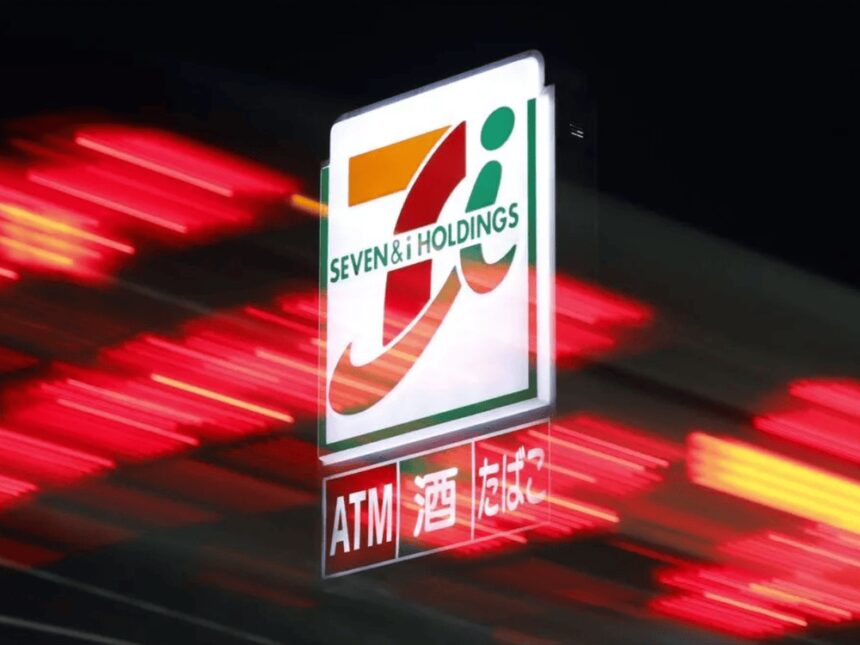The sudden collapse of what could have been one of North America’s largest retail acquisitions sent ripples through financial markets this week. Quebec’s convenience store giant Alimentation Couche-Tard formally abandoned its pursuit of Seven & i Holdings, the Japanese parent company of 7-Eleven, citing a frustrating lack of engagement from the target’s leadership.
This withdrawal ends weeks of speculation about a potential mega-merger that would have reshaped the convenience store landscape across multiple continents. According to sources familiar with the negotiations, Couche-Tard’s offer valued Seven & i at approximately US$38.5 billion—a premium of about 30% over its market value before news of the potential deal leaked.
“When a company puts forward a serious acquisition proposal, they expect, at minimum, a seat at the table,” explains Michael Goldberg, retail analyst at BMO Capital Markets. “What Couche-Tard encountered instead appears to be a deliberate strategy of non-engagement.”
The Quebec-based operator of Circle K stores has built its global footprint through strategic acquisitions, growing from a single store in 1980 to over 14,000 locations across North America, Europe, and Asia. Adding 7-Eleven’s approximately 83,000 stores worldwide would have created an unprecedented convenience store empire with truly global reach.
The market responded predictably to the news, with Couche-Tard shares climbing nearly 4% as investors expressed relief that the company wouldn’t be taking on substantial debt for the acquisition. Meanwhile, Seven & i Holdings saw its stock decline by over 7% on the Tokyo Stock Exchange as the premium offer disappeared.
Behind the failed courtship lies a complex tale of corporate culture clashes and defensive posturing. Seven & i, founded in 1920s Japan, has operated with a traditionally conservative Japanese corporate approach, while Couche-Tard has aggressively expanded through dozens of acquisitions under founder Alain Bouchard’s leadership.
“Japanese companies have historically been resistant to foreign takeovers,” notes Akiko Fujita, international business professor at York University. “There’s often concern about preserving corporate legacy and independence, especially for iconic brands like 7-Eleven that are deeply embedded in Japanese daily life.”
What makes this collapse particularly notable is Couche-Tard’s unusually direct language in its statement, referring specifically to Seven & i’s “lack of good-faith engagement.” Such public expressions of frustration are relatively rare in major M&A situations, where companies typically cite vague “inability to reach mutually agreeable terms” when deals fall apart.
The failed acquisition attempt represents the second major setback for Couche-Tard’s expansion plans in recent years. In 2021, the company’s US$20 billion bid for French grocery chain Carrefour was blocked by the French government on food security grounds.
For Canadian markets, this development carries mixed implications. On one hand, it preserves Couche-Tard’s financial flexibility and prevents the company from potentially overextending itself. On the other, it raises questions about where the convenience store operator might look next to fulfill its growth ambitions.
“Couche-Tard has approximately $6.5 billion in available liquidity and a proven integration model,” says Irene Nattel, retail analyst at RBC Capital Markets. “The question isn’t whether they’ll pursue another acquisition, but rather which target makes strategic sense given the current regulatory environment.”
Industry observers now speculate that Couche-Tard might pivot toward smaller, regional convenience chains or even explore adjacent retail sectors. Possibilities include fuel distributors with strong convenience operations or food service businesses that could enhance Couche-Tard’s in-store offerings.
The collapse also spotlights broader issues in cross-border M&A, particularly when deals involve companies from markets with differing corporate governance traditions. While North American boards typically have fiduciary responsibilities to consider credible offers, Japanese corporate structures often prioritize stakeholder relationships and long-term independence over maximizing short-term shareholder value.
For Canadian investors, the episode serves as a reminder that even well-capitalized domestic champions face significant hurdles when attempting to expand globally. Despite being one of Canada’s largest public companies with a market capitalization exceeding $70 billion, Couche-Tard continues to encounter resistance from both regulatory authorities and corporate targets.
The convenience store sector itself remains in flux, with traditional operators adapting to changing consumer habits, electric vehicle adoption, and digital competition. Consolidation has been a key strategy for achieving the scale necessary to invest in these transitions.
“The convenience model is evolving beyond fuel and cigarettes,” explains retail consultant Terry Henderson. “Leading operators are reimagining stores as quick service food destinations, EV charging hubs, and last-mile delivery points. Scale matters enormously in funding this transformation.”
As Couche-Tard regroups from this setback, attention now turns to potential alternative targets and whether Seven & i might attract interest from other suitors. For now, both companies return to their respective corners of the global convenience store market, competitors rather than partners in an industry undergoing rapid change.






